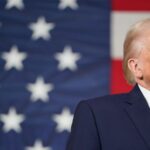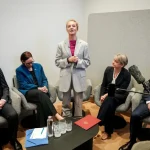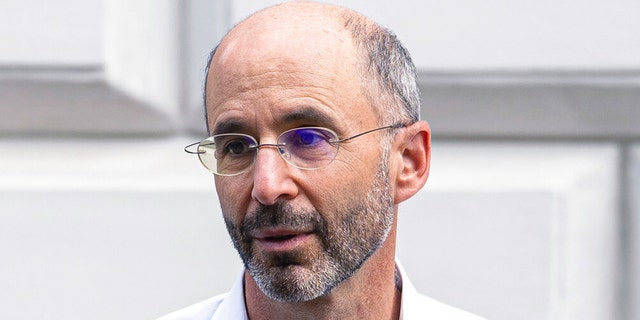
The Biden administration says it will not “waste time” on trying to revive talks with Iran regarding its dormant nuclear deal in light of Tehran’s brutal crackdown on antigovernment protesters and its support of Russia in its war against Ukraine.
While speaking at an event hosted by the Carnegie Endowment for International Peace on Monday, U.S. envoy for Iran Rob Malley said the administration “makes no apology” for “trying to do everything we can to prevent Iran from acquiring a nuclear weapon.”
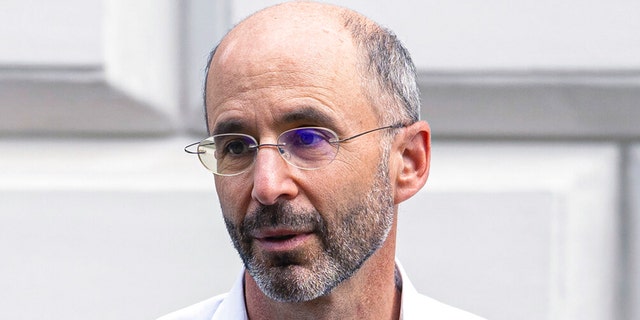
FILE: The U.S. special envoy to Iran, Robert Malley is shown in Vienna, Austria, June 20, 2021. (AP Photo/Florian Schroetter, File)
Malley’s comments were the closest a Biden administration official has come to admitting it was abandoning its efforts to resurrect the 2015 Iran nuclear deal.
Over the summer, Iranian officials rejected an EU proposal and made more demands in late August and early September. Since that time, antigovernment protests have broken in Iran in response to the police custody death of 22-year-old Mahsa Amini. Morality police detained Amini in September for not properly covering her hair with the Islamic headscarf, known as the hijab, which is mandatory for Iranian women.
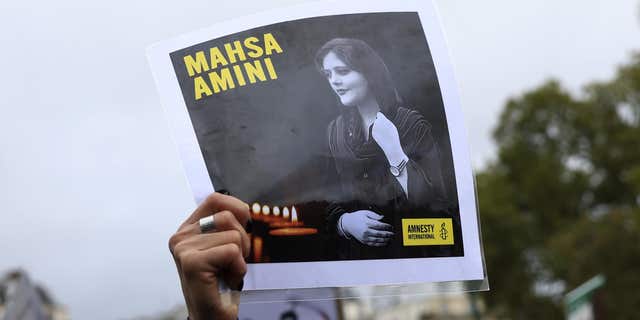
A protester shows a portrait of Mahsa Amini during a demonstration to support Iranian protesters standing up to their leadership over the death of a young woman in police custody, Sunday, Oct. 2, 2022 in Paris. (AP Photo/Aurelien Morissard)
At least 270 people have been killed and 14,000 arrested, according to the group Human Rights Activists in Iran. Demonstrations have continued, even as the feared paramilitary Revolutionary Guard has warned young Iranians to stop.
The administration announced sanctions against Iranian officials for the brutal treatment of demonstrators. The administration has also hit Iran with sanctions for supplying drones and technical assistance to Russia and ordered U.S. military strikes in August against Iranian-backed militias in Syria in response to attacks on U.S. forces in the region.
HOW BIDEN ADMINISTRATION CAN HELP IRANIAN PROTESTERS AND PUT PRESSURE ON REGIME: NONPROFIT
“I think people have to understand that we’re not tying our hands because of … this hope that someday maybe there’ll be a deal,” Malley said. “No, we are taking action. We’re not waiting. We’re taking the action that we think is consistent and necessary to promote our values and our national security interests.”
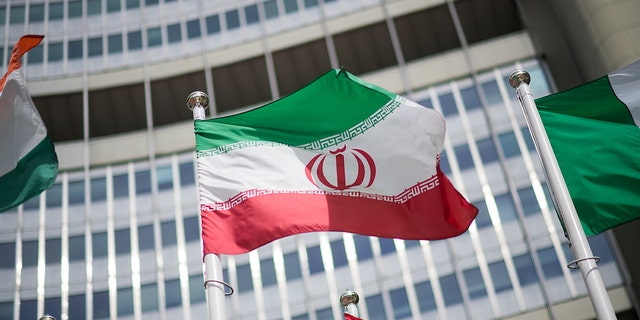
FILE: The flag of Iran is seen in front of the building of the International Atomic Energy Agency (IAEA) Headquarters ahead of a press conference by Rafael Grossi, Director General of the IAEA, about the agency’s monitoring of Iran’s nuclear energy program on May 24, 2021, in Vienna, Austria. (Photo by Michael Gruber/Getty Images)
The Iran nuclear deal already has been teetering toward collapse despite President Biden’s efforts to revive it since August, with his administration saying Tehran has sought to push extraneous issues into the indirect talks. Still, the administration has not given up all hope for a turnaround.
The pact, known as the Joint Comprehensive Plan of Action, or JCPOA, would provide Tehran with billions of dollars in sanctions relief in exchange for the country agreeing to roll back its nuclear program to the limits set by the 2015 deal.
CLICK HERE TO GET THE FOX NEWS APP
The deal was brokered by the Obama administration before being abandoned by the Trump administration in 2018. It includes caps on enrichment and how much material Iran can stockpile and limits the operation of advanced centrifuges needed to enrich.
The Associated Press contributed to this report.




